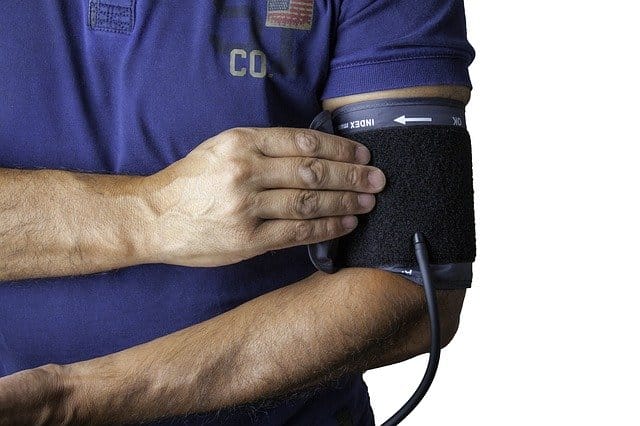A heart attack (myocardial infarction) is a severe medical condition in which the flow of oxygen-rich blood to a heart section is suddenly blocked, usually by a clot. If the medical treatment to restore the blood supply to the heart is not abrupt, the condition can be life-threatening. The major causes of heart attack are the building up of plaque inside the coronary arteries, which blocks the supply of oxygen-rich blood. The interrupted backflow of blood can cause damage to the heart muscles. If the clot becomes large, it breaks up inside the artery, and it can completely block the flow of the blood through the coronary artery.
If the blockage is not appropriately treated; the healthy tissue gets replaced by the scar tissue, it may cause severe or long-lasting damage. It can result in heart problems such as
- Myocardial infarction (MI)
- Acute myocardial infarction (AMI)blockage
- Acute coronary syndrome
- Coronary thrombosis
- Coronary occlusion
Symptoms of a Heart Attack

Although chest pain or squeezing pressure on the chest is the most common symptom of a heart attack, different victims may experience a variety of other symptoms, including:
- Jaw pain, pain in teeth, headache
- Shortness of breath
- Epigastric or upper abdominal discomfort such as nausea, vomiting,
- Sweating
- Heartburn
- Arm pain (commonly the pain occurs in the left arm, but maybe either arm)
- Upper back pain
- Feeling of illness
- Sometimes the heart attack is silent without any symptom, and these are more common in diabetes mellitus patients.
What are the Causes of Heart Attack?
Discussed below are the causes of heart attack.
Coronary Heart Disease
A heart attack occurs if the heart muscles do not get enough oxygen-rich blood due to blockage. A considerable ratio of Most heart attacks occurs due to ischemic heart disease; a condition in which a plaque builds up on the coronary arteries’ inner walls, hindering the supply of oxygen-rich blood to the heart. The condition is termed as atherosclerosis and occurs over many years. The plaque breaks open the artery, causing blood clot formation on the surface of the plaque. If the plaque’s size becomes large enough, it can completely block blood supply through a coronary artery to the heart.
The long-term untreated blockage can cause the heart muscle’s death, forming scar tissue on the heart. Although it may not be apparent damage, it may result in severe complications.
Coronary Artery Spasm
Another but less common cause of a heart attack is coronary artery spasm. Coronary artery spasm is the tightening of the arteries, which cuts off the flow of blood. Coronary artery spasm can occur in those arteries not affected by atherosclerosis ( a process described in the above paragraph). The primary reason for a coronary artery to spasm isn’t clear, but it may be related to:
- Taking abusive drugs, such as cocaine
- Emotional stress or pain
- Exposure to severe cold
- Cigarette smoking
Read other Articles
- Depression: How to Cope and Live with it?
- What is Sleep Deprivation and its effects on the body?
- Healthy Life: Can I achieve this milestone?
- How to Boost the Immunity Naturally?
- What is Fatty Liver and How to get rid of it?
What are the Risk Factors of a Heart Attack?
Certain factors increase the risk of developing atherosclerosis and heart attacks. In this parameter, there are further two divisions in which there are risk factors which you cannot control, but others are entirely dependent on your lifestyle. Below both kinds of risk factors are being discussed in detail.
Risk factors being a cause of heart attack but controllable are
High Blood Cholesterol
A high cholesterol level in the blood is one of the significant risk factors associated with heart attack risk. Cholesterol is the major part of the plaques deposited in the walls of the arteries. An essential fact about cholesterol is that oil present in the diet cannot dissolve directly into the blood cholesterol. Like oil, it cannot dissolve unless it is combined with particular proteins called lipoproteins. If the oil does not combine with lipoproteins, it will solidify. The cholesterol is combined either with low-density lipoproteins or high-density lipoproteins making VLDL or HDL respectively.
The (LDL cholesterol) is the “bad” cholesterol causing deposits of cholesterol in arteries making plaques. Thus, increased levels of LDL cholesterol are associated with an elevated risk of a heart attack. On the other hand HDL (HDL cholesterol) is the “good” cholesterol that removes cholesterol from arterial plaques and low levels of HDL cholesterol are not good for heart health.
How can I reduce my LDL cholesterol?
Things that can play a significant role in lowering LDL cholesterol and increasing HDL cholesterol are
- Losing excess weight,
- Diets low in saturated fats
- regular exercise
- Medications like Statins to reduce the risk of a heart attack.
- Statin is an essential class of medications for treating elevated cholesterol levels and protecting against heart attack.
High Blood Pressure

High blood pressure is a major risk factor for developing atherosclerosis and causing a heart attack. Elevated systolic pressure, as well as high diastolic pressure, significantly increase the risk of a heart attack. It is one of the essential factors. Controlling hypertension with lifestyle change or medications can reduce the risk of a heart attack.
Smoking
Tobacco and tobacco smoke contain chemicals which cause damage blood vessel walls and accelerate atherosclerosis, increasing the risk of a heart attack.
Diabetes

Both Type 1 and Type 2 Diabetes (insulin-dependent and noninsulin-dependent diabetes, respectively) are known to cause an increase the risk of atherosclerosis in the body. Diabetic patients are at a high risk of developing coronary heart disease, erectile dysfunction, and strokes early than non-diabetic people. However, diabetic people can control the risks by reducing blood sugar levels, regular exercise and a controlled diet.
Metabolic Syndrome
Some of the heart disease risk factors—such as obesity, high blood pressure, and high blood sugar—tend to occur together, called metabolic syndrome. In general, a person suffering from metabolic syndrome the possibility of heart disease is twice, and diabetes is five times.
Factors You Can’t Control
Risk factors that a person cannot control include:
- Age: The risk of heart disease attack and other heart diseases is high for men after 45 and women aged 55. However, the risk of heart attack is more in males than in females, but after 75 years of age, the risk becomes quite the same for both genders.
- Family history of early heart disease: The risk of heart disease is more in people who have a family history of a heart attack. You are at high risk of heart attack if your father and brother have a heart attack due to coronary artery disease before 55 years of age while in mother and sister above 65.
- Preeclampsia: a condition that develops during pregnancy, has symptoms such as a rise in blood pressure and excess protein. Preeclampsia is associated with an increased lifetime risk of heart disease, heart attack, coronary heart disease, heart failure, and high blood pressure.
Medical Follow up
After a heart attack, the patient needs treatment for ischemic heart disease. To prevent another heart attack. Your doctor may recommend:
- Lifestyle changes, including a healthy diet, physical activity, weight management, and quitting smoking, are vital.
- Medicines to control chest pain, high blood cholesterol, hypertension and your heart’s workload. These medicines help prevent second heart attack.
- Anticlotting medicines, such as aspirin, are prescribed to reduce the chances of a blood clot and prevent another heart attack.
Always follow the prescribed treatment plan and never stop taking the medicines without consulting your doctor.
Returning to Routine Life
After a heart attack, most people return to their everyday life within a few weeks. Those who do not have a chest pain return to normal activities quite early with some walking right away after treatment. A person can involve in sexual activities with the partner after a few weeks, but it is advised to consult a doctor to have an opinion according to your treatment plan.
If allowed by the specific state law, the patients who don’t have chest pain or discomfort or other disabling problems can start driving after a few weeks. Each state has rules regarding operating a motor vehicle following the treatment of a severe illness. People who have complications shouldn’t drive until their doctor finds it safe to do so for them.
Anxiety and Depression After a Heart Attack
After a heart attack, many people get depressed about having another heart attack and cannot adjust to the new lifestyle changes. In such patients taking to health-practitioner can help. If your depression and anxiety are bothering you and causing a hindrance in your recovery, the doctor may recommend, counselling and medicine to improve the quality of life.
Another way is to join a patient support group and talk to other people who have the same symptoms and have coped with them. Family, friends and a personal will to return to work and routine life can help relieve stress and anxiety.
Risk of a Repeat Heart Attack
If a person has had a heart attack, he is at a higher risk for another. Understanding the difference between angina and a heart attack is vital. Angina is chest pain in patients with ischemic heart disease and usually occurs after physical exhaustion and goes away in a few minutes after taking rest.
The pain from a heart attack usually is more severe than the pain from angina. Heart attack pain doesn’t go away even if you take rest, and it is recommended strongly never to take a chance and call medical help. The delay can result in fatal damage or even death.
Take Away
Many people survive a heart attack and live an active life. If the patient gets help quickly, treatment can limit the damage done to a heart muscle. Less heart damage improves the chances for a better quality of life even after a heart attack. A delay in treatment can be a cause of permanent damage reducing the heart’s function due to injury of the heart muscle. Early diagnosis and treatment can save a life, and delays in seeking medical assistance can be fatal.
References:
https://www.nhs.uk/conditions/heart-attack/causes/
https://www.mayoclinic.org/diseases-conditions/heart-attack/symptoms-causes/syc-20373106
https://www.health.harvard.edu/newsletter_article/what-triggers-heart-attacks